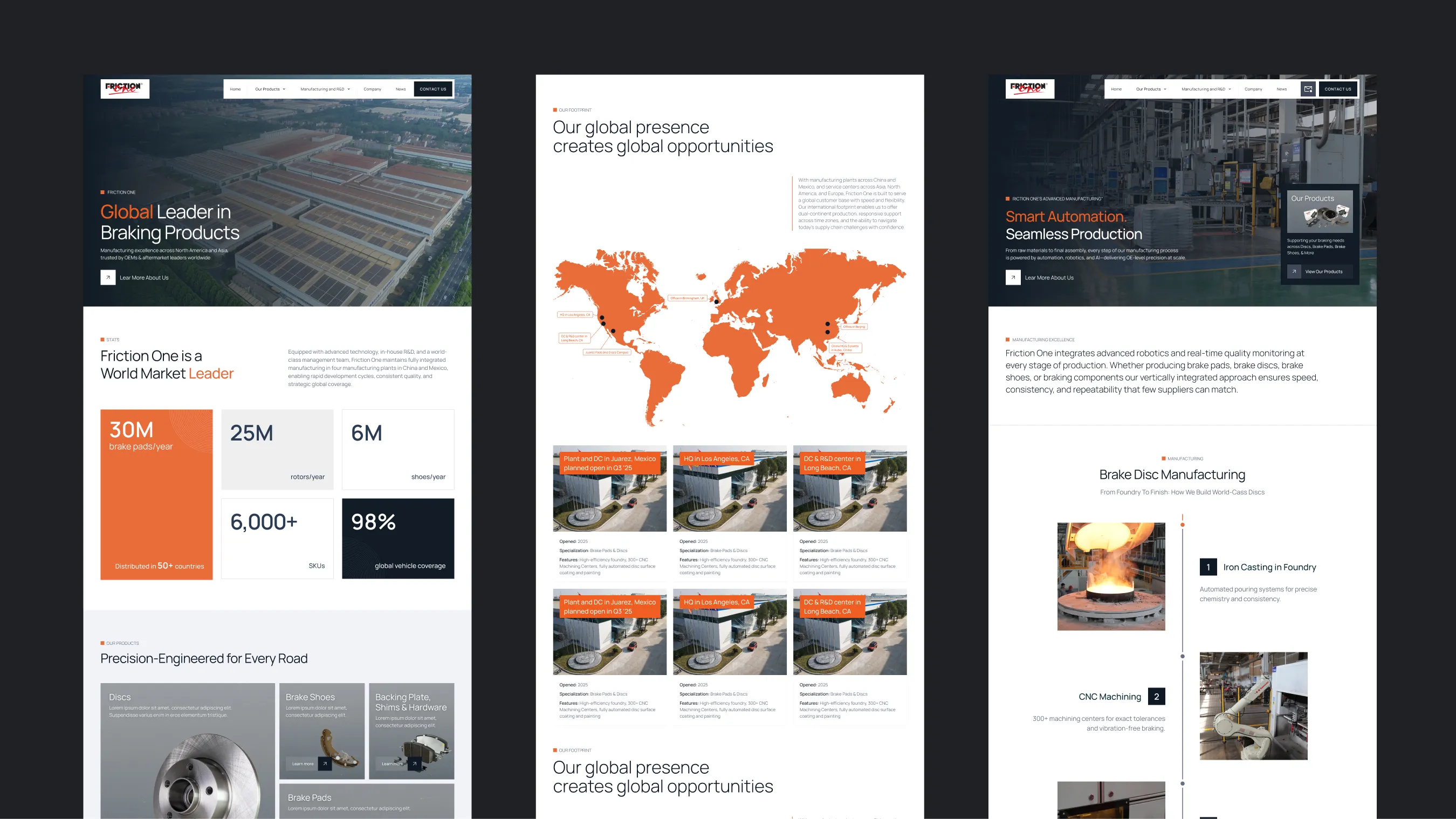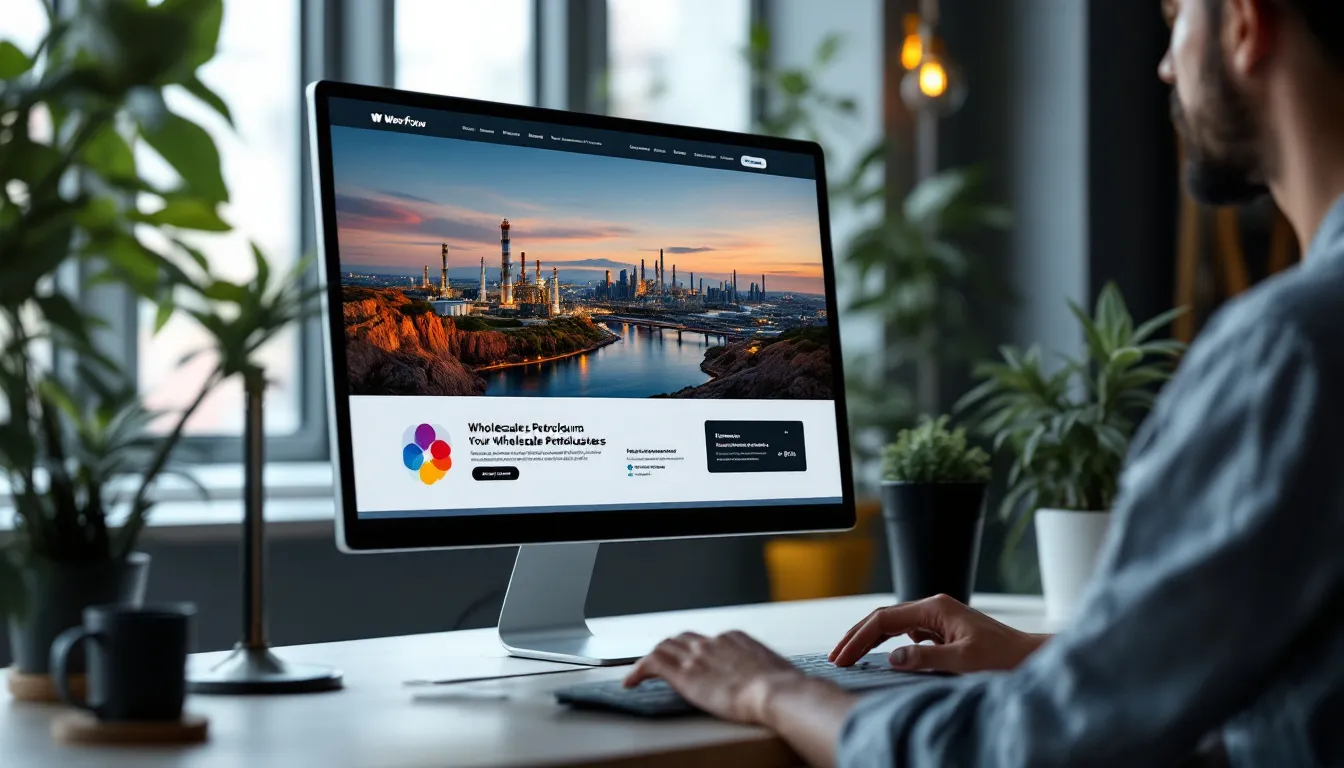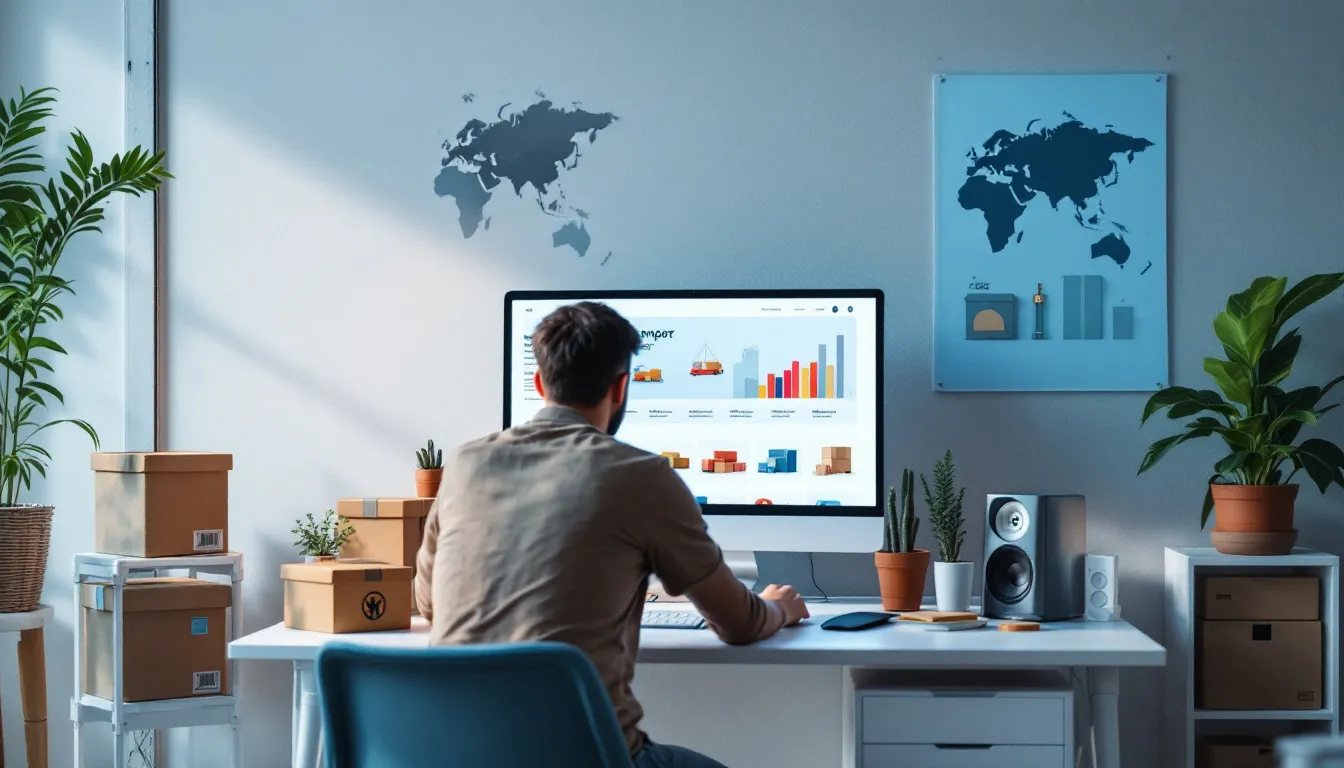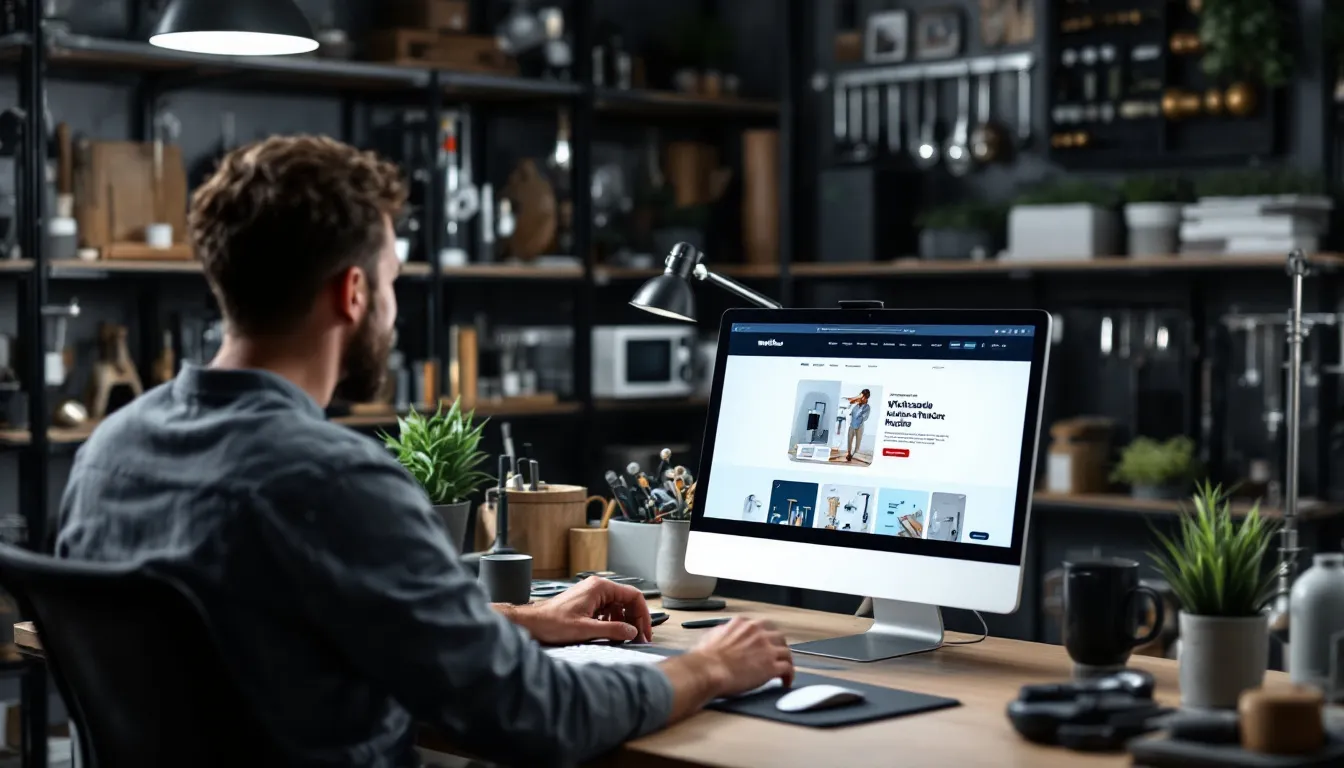See How I Helped My Client Achieve Better Results
A real-life case study of a website redesign on CMS — optimized for growth, easy content management, and stronger SEO performance.
- Custom Design That Reflects Your Brand Unlike cookie-cutter templates, Webflow offers full creative freedom. I design websites tailored to your specific goals, ensuring a professional look that resonates with your audience.
- Clean, SEO-Friendly StructureWebflow’s built-in SEO capabilities allow me to create a well-structured website with:
- Clean, keyword-rich URLs for better search visibility.
- Logical internal linking to boost user navigation and page authority.
- Schema markup integration for enhanced search engine understanding.
- Responsive by DesignYour audience is using desktops, tablets, and smartphones. Every site I build is optimized for all screen sizes, ensuring a seamless experience no matter how visitors access it.
- CMS That Puts You in ControlWith Webflow’s powerful CMS, you can easily manage and update your content, from blog posts to product descriptions, without needing technical expertise.
How to Build a Website in Webflow for a Wholesale Recyclable Materials Company with CMS
In today's digital landscape, having a robust online presence is crucial for any business, including those in the wholesale recyclable materials sector. A well-designed website not only showcases products but also enhances user experience (UX), optimizes for search engines (SEO), and boosts conversion rates (CRO). Webflow is an excellent platform for building such a website, especially when utilizing its powerful Content Management System (CMS) capabilities. This guide will walk you through the steps to create a stunning and functional website tailored for a wholesale recyclable materials company.
Understanding the Basics of Webflow
Before diving into the actual building process, it's essential to familiarize yourself with Webflow's features and functionalities. Webflow is a versatile web design tool that combines the power of a visual editor with the flexibility of code. This means that even those without extensive coding knowledge can create beautiful, responsive websites. Its intuitive interface allows designers to drag and drop elements onto the canvas, making it accessible for beginners while still offering advanced capabilities for seasoned developers. As you explore Webflow, you'll discover how its design-first approach can significantly reduce the time it takes to bring a website from concept to launch.

The Importance of a CMS
A Content Management System (CMS) allows users to create, manage, and modify content on a website without needing specialized technical knowledge. For a wholesale recyclable materials company, a CMS can streamline the process of updating product listings, blog posts, and other essential information. This is particularly beneficial as the inventory and offerings may change regularly. With Webflow's CMS, users can set up custom content types tailored to their business needs, enabling them to categorize products, manage inventory levels, and even schedule content updates. This not only saves time but also ensures that the website remains current and relevant, which is vital in a fast-paced industry.
Webflow’s Unique Features
Webflow stands out due to its combination of design flexibility and CMS capabilities. With Webflow, users can create custom layouts, animations, and interactions without writing a single line of code. The platform also offers built-in SEO tools, allowing users to optimize their site for search engines effectively. This is crucial for a wholesale business looking to attract more clients and increase visibility online. Additionally, Webflow's responsive design features ensure that websites look great on all devices, from desktops to smartphones, which is increasingly important as mobile browsing continues to rise. The ability to preview how a site will appear on different screen sizes in real-time allows designers to make adjustments on the fly, enhancing user experience across various platforms.
Planning Your Website Structure
Before jumping into Webflow, it's vital to plan your website's structure. A well-organized site not only improves user experience but also aids in SEO. Consider the following elements when planning:
Defining Your Target Audience
Understanding your target audience is the first step in building an effective website. For a wholesale recyclable materials company, your audience may include manufacturers, retailers, and other businesses looking for sustainable materials. Tailoring your content to meet their needs will enhance engagement and conversion rates. Additionally, conducting market research can provide insights into the preferences and pain points of your audience, allowing you to create more targeted messaging. For instance, highlighting the environmental benefits of using recycled materials can resonate strongly with eco-conscious businesses.
Creating a Sitemap
A sitemap serves as a blueprint for your website, outlining the main pages and their relationships. Common pages for a wholesale recyclable materials company might include:
- Home
- About Us
- Products
- Blog
- Contact Us
Each of these pages should serve a specific purpose, guiding visitors through their journey on your site. For example, the 'Products' page can be further divided into categories such as plastics, metals, and paper, allowing users to easily navigate and find specific materials. Furthermore, integrating a search function can enhance usability, enabling potential clients to quickly locate the information they need. Don't forget to include a 'Resources' section that offers downloadable content, such as product specifications and case studies, which can further establish your company as an authority in the recyclable materials industry.
Setting Up Your Webflow Project
Once you have a clear plan, it's time to set up your Webflow project. This process is straightforward and user-friendly, making it accessible even for beginners.

Creating a New Project
To start, log in to your Webflow account and create a new project. Choose a blank canvas or a template that resonates with your brand's aesthetic. Templates can save time, but customizing a blank canvas allows for a unique design tailored to your company's needs.
Designing Your Layout
Webflow provides a drag-and-drop interface that makes designing your layout intuitive. Start by adding a navigation bar to ensure users can easily access different sections of your site. Consider incorporating a hero section on the homepage that highlights your company’s mission and key offerings.
Building the Homepage
The homepage is often the first impression potential clients will have of your business. It should be visually appealing and informative, providing a clear overview of what you offer.
Incorporating Visual Elements
Use high-quality images of your recyclable materials and any relevant projects. Visuals play a crucial role in engaging visitors and conveying the quality of your products. Webflow allows you to create responsive images that adapt to different screen sizes, ensuring a seamless experience across devices.
Crafting Compelling Copy
Alongside visuals, the text on your homepage should be concise yet informative. Highlight your unique selling points, such as sustainability practices, product variety, and customer service. Use headings and bullet points to break up text and make it easily scannable.
Creating Product Pages with CMS
For a wholesale recyclable materials company, product pages are critical. They provide detailed information about each material, including specifications, pricing, and availability.
Setting Up the CMS Collections
Webflow’s CMS allows you to create a collection for your products. Each product can have fields for images, descriptions, pricing, and other relevant details. This setup enables easy updates and management of your inventory.
Designing Product Templates
Once your CMS collection is set up, design a product template page that pulls in data from your collection. This page should include a product image, description, and a call-to-action (CTA) button for inquiries or purchases. Ensure that the design is consistent with your overall branding.
Enhancing User Experience (UX)
User experience is paramount in web design. A website that is easy to navigate and visually appealing will keep visitors engaged and encourage them to explore further.
Implementing Intuitive Navigation
Ensure your website's navigation is clear and intuitive. Use descriptive labels for your navigation links, and consider adding a search bar to help users find specific products quickly. A well-structured navigation menu enhances UX and encourages users to stay longer on your site.
Mobile Responsiveness
With an increasing number of users accessing websites via mobile devices, ensuring your site is mobile-responsive is crucial. Webflow allows you to preview and adjust your design for different screen sizes, ensuring a seamless experience for all users.
Optimizing for Search Engines (SEO)
SEO is vital for increasing your website's visibility on search engines. Webflow offers built-in SEO tools that make optimization straightforward.
Using Descriptive URLs
When creating pages, use descriptive URLs that include relevant keywords. For example, instead of a generic URL like “/page1,” use “/recyclable-materials.” This practice not only helps with SEO but also makes it easier for users to understand what the page is about.
Meta Tags and Alt Text
Ensure that each page has unique meta titles and descriptions that accurately reflect the content. Additionally, include alt text for images to improve accessibility and SEO. This practice helps search engines understand the context of your images, which can enhance visibility in image searches.
Boosting Conversion Rates (CRO)
Conversion Rate Optimization (CRO) focuses on increasing the percentage of visitors who take a desired action on your site. For a wholesale recyclable materials company, this might mean filling out a contact form or making a purchase.

Effective Call-to-Actions (CTAs)
CTAs are essential for guiding users toward taking action. Use clear and compelling CTAs throughout your site, encouraging visitors to reach out for quotes, sign up for newsletters, or explore product offerings. Place CTAs strategically, such as at the end of product descriptions or within blog posts.
Building Trust with Testimonials
Incorporating customer testimonials and case studies can significantly boost credibility. Showcase positive feedback from satisfied clients on your homepage or a dedicated testimonials page. This social proof can help potential customers feel more confident in choosing your services.
Publishing and Maintaining Your Website
Once your website is designed and optimized, it's time to publish it. Webflow makes this process seamless, allowing you to launch your site with just a few clicks.
Regular Updates and Content Management
After launching, it's crucial to keep your website updated. Regularly add new products, blog posts, and industry news to keep content fresh and engaging. Webflow’s CMS makes this process easy, allowing for quick updates without needing to redesign pages.
Monitoring Performance
Utilize tools like Google Analytics to monitor your website's performance. Tracking metrics such as traffic sources, user behavior, and conversion rates can provide valuable insights into what works and what needs improvement. Regularly reviewing this data can inform your ongoing SEO and CRO strategies.
Conclusion
Building a website in Webflow for a wholesale recyclable materials company can be a rewarding experience. By leveraging the platform's CMS capabilities, focusing on UX, and implementing effective SEO and CRO strategies, businesses can create a site that not only attracts visitors but also converts them into loyal customers. With careful planning, attention to detail, and a commitment to ongoing improvement, your website can become a powerful tool for growth in the sustainable materials industry.
Ready to Elevate Your Online Presence?
If you're inspired to transform your wholesale recyclable materials company with a high-performance, SEO-optimized Webflow website, look no further. I am Karina Slizova, a Freelance Web Designer and Webflow Developer dedicated to crafting custom no-code website solutions. Specializing in industries from Construction to Law, I'm here to help you turn users into clients and achieve your business goals. Schedule a call with me today, and let's collaborate to build a website that not only looks great but also drives your business forward.

👋 I'm Karina Slizova — a Webflow designer and developer specializing in websites for construction, agriculture, real estate, and architecture companies.
If you're looking to build a website like this and hire a Webflow designer — let's talk.








